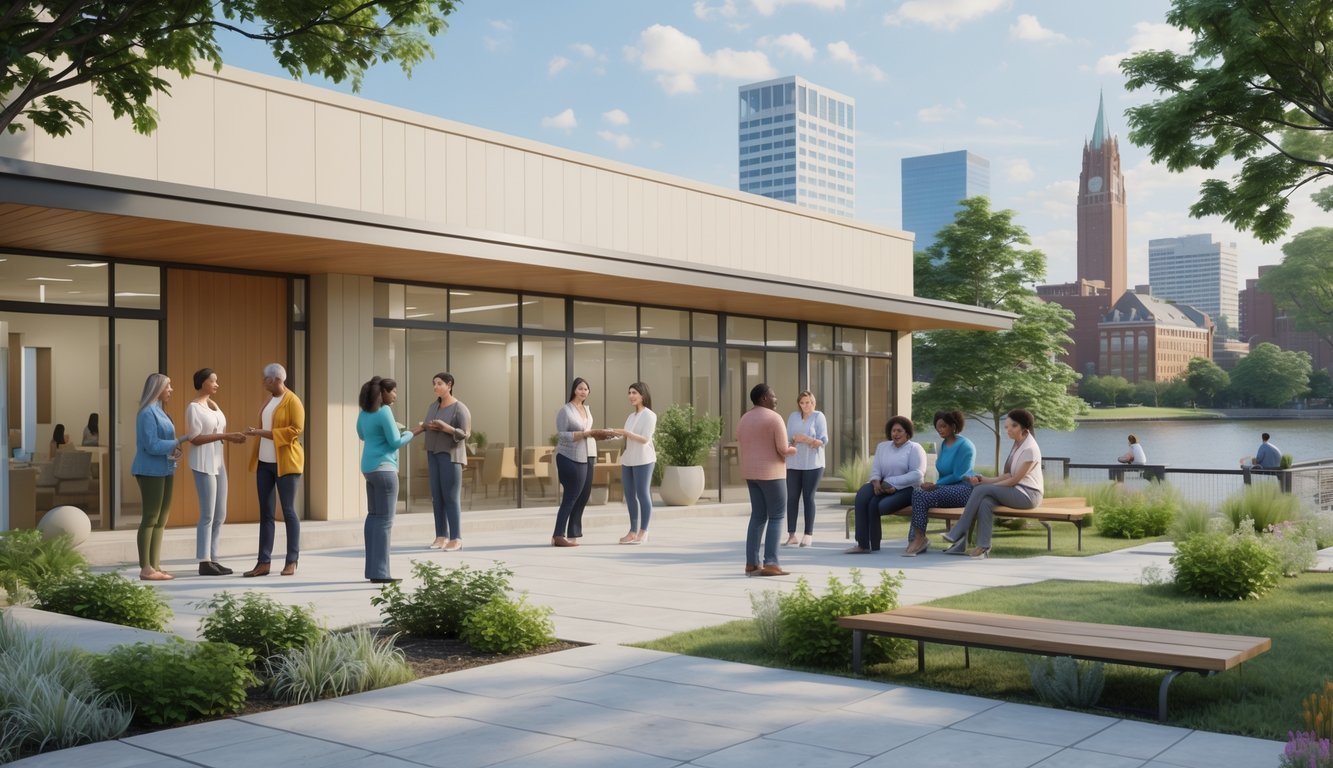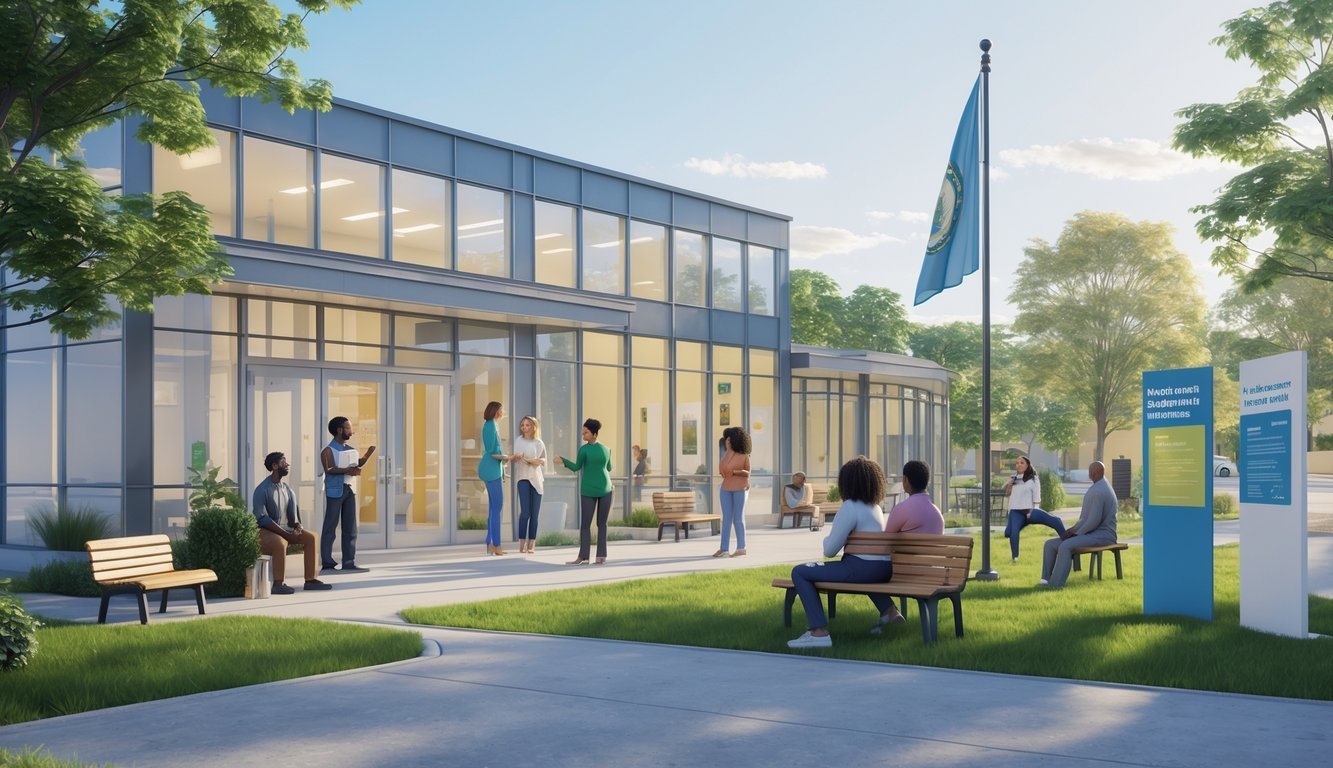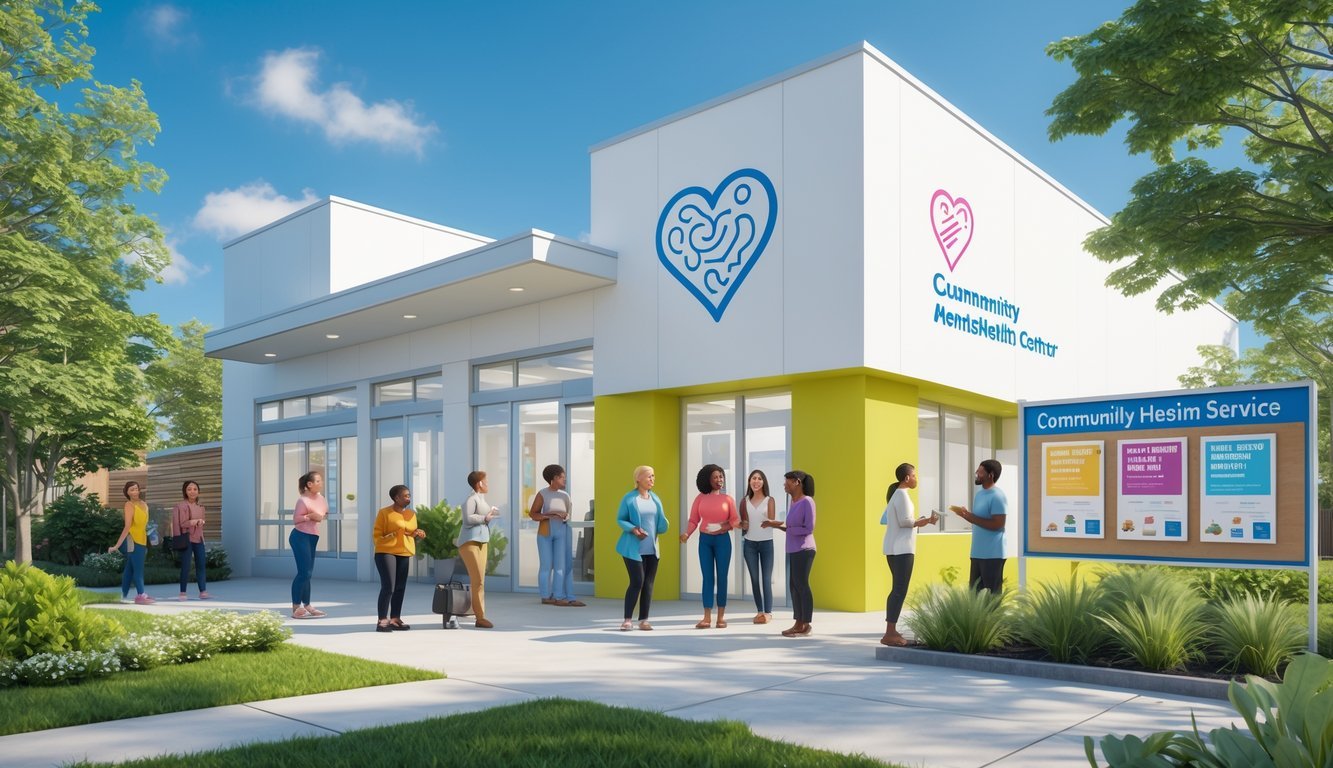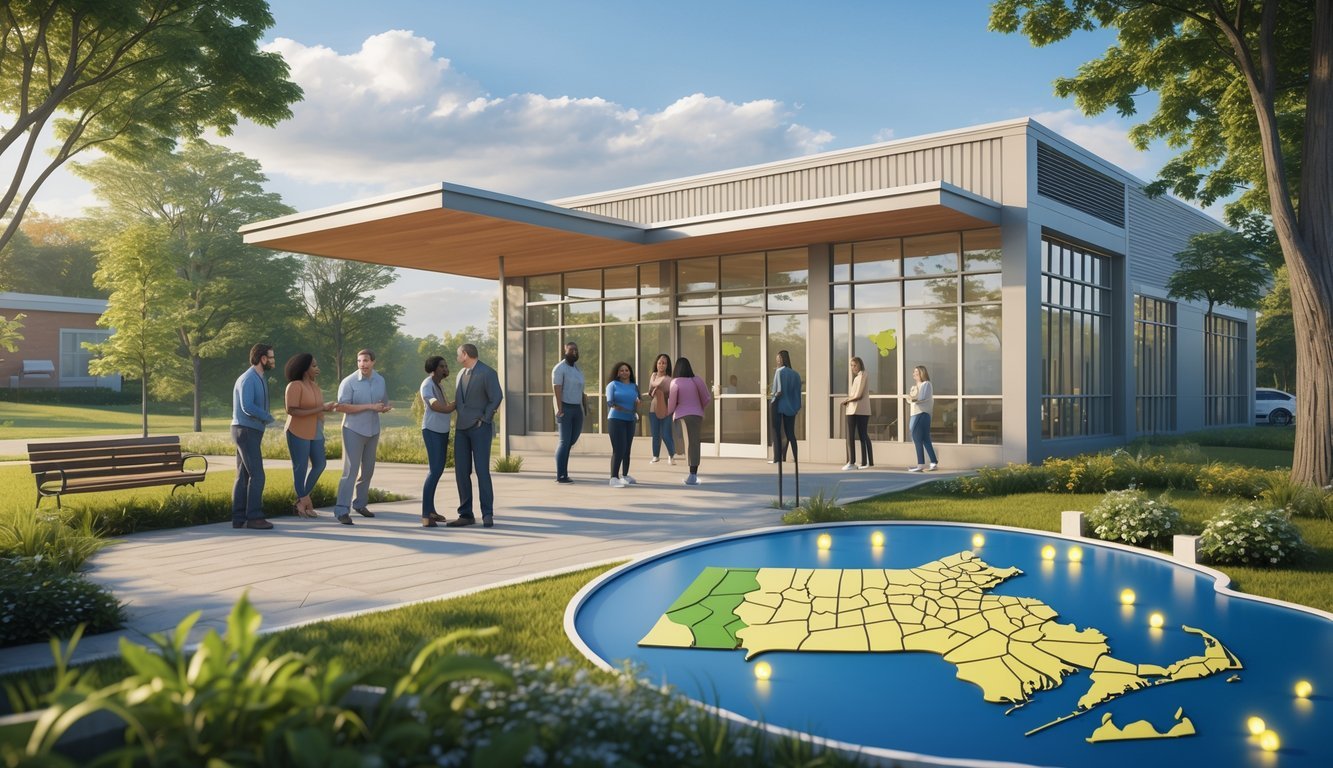PsychNewsDaily Publishers
100 Summit Drive
Burlington, MA, 01803
Telephone: (320) 349-2484
PsychNewsDaily Publishers
100 Summit Drive
Burlington, MA, 01803
Telephone: (320) 349-2484
Massachusetts offers various mental health care options, including MassHealth, community behavioral health centers, and crisis support services, ensuring accessible support for all residents.

Trying to find affordable mental health care in Massachusetts can feel like a lot, but you’ve got more options than you might expect. The state has set up plenty of free programs, community centers, and healthcare initiatives so that people can get help, no matter what their bank account looks like.
If you live in Massachusetts, you can use free mental health services through MassHealth, community behavioral health centers, crisis support lines, and special programs for all ages. You’ll find everything from emergency intervention to regular therapy and counseling. Most of these don’t require insurance or upfront payment, so mental health care really is open to everyone here.
Whether you’re dealing with depression, anxiety, substance use, or something else, knowing your options makes it easier to start getting support. Massachusetts has built up a solid network of providers and resources, making it possible to find the right care close to home.

MassHealth and local community programs offer a wide range of free mental health services in Massachusetts. You can get therapy, crisis support, and programs tailored for kids and adults.
The state runs several big mental health programs at no cost for those who qualify. MassHealth is the main one, offering full behavioral health services for kids, teens, and young adults under 21.
MassHealth’s EPSDT benefit gives you access to free mental health services like individual, family, and group therapy. You don’t need a diagnosis to get these preventive services.
The Children’s Behavioral Health Initiative (CBHI) supports MassHealth members with emotional or behavioral needs. This includes:
Community Behavioral Health Centers (CBHCs) are spread across the state. These centers give you immediate mental health care and 24/7 crisis support.
State agencies in Massachusetts handle mental health services through several channels. MassHealth stands as the main program, giving free behavioral health coverage to those who qualify.
You can find help through mass.gov and other state-funded programs. Crisis services run all day, every day.
Mobile crisis teams can come to you if you’re having a mental health emergency. They offer support right where you are, so you don’t have to travel.
For kids with autism, the state offers applied behavior analysis services. There’s also coverage for residential rehab for substance use.
Outpatient opioid treatment programs are available for people dealing with addiction. These services include medication-assisted treatment and counseling.
Massachusetts provides both outpatient and inpatient mental health services at no cost. You can get outpatient therapy in individual or group settings from many providers.
Crisis intervention services work around the clock for urgent mental health concerns. Just call a crisis hotline or ask for a mobile crisis team.
Inpatient behavioral health services give you 24-hour hospital care for serious mental health issues. You can go in voluntarily or during an emergency.
Substance use treatment covers residential rehab and outpatient counseling. Special opioid programs offer methadone and buprenorphine.
Preventive services include mental health screenings at regular doctor visits. Early screenings catch problems before they get worse.
Family support services teach parents and caregivers skills to help children with behavioral health needs. You can join parent training or family therapy sessions.

You can get mental health support through the state help line, local community centers, and referral services. Each one connects you to different types of care and ongoing treatment.
The Massachusetts Behavioral Health Help Line is your go-to for mental health crises and support. You can call this 24/7 service whenever you need help or just some direction.
BHHL staff connect you with trained counselors who listen and figure out what you need. They’ll help with crisis intervention and point you to local resources.
Available Services:
Call 1-833-773-2445 to reach the help line. It’s free and confidential for everyone in Massachusetts.
Staff can talk with you in several languages. If you need an interpreter, they’ll get one on the line.
Community behavioral health centers give you mental health services right in your area. They offer emergency help and ongoing care.
Community Behavioral Health Center in Waltham has same-day support and outpatient therapy. Other centers offer similar walk-in services.
Common Services Available:
You can usually walk in for urgent needs. For regular therapy, you’ll need to set up appointments.
Most centers take MassHealth and other insurance plans. It’s a good idea to call first to check coverage and open times.
Referral services help you find the right mental health provider for what you’re dealing with. They make it easier to connect with therapists or psychiatrists who fit your needs.
Psychology Today provides a searchable directory so you can look up therapists and psychiatrists by zip code. You can filter by specialty, insurance, or treatment style.
MABHA Mental Health Referrals helps people across Massachusetts connect with mental health services. They’ll match you with providers who fit your situation.
What Referral Services Provide:
Arlington’s Community Resource Specialist helps residents under 60 find mental health services. You can reach Denisa Burt at 781-316-3271 for personal help.

You’ll find free mental health services in Massachusetts through big healthcare systems in Boston and Worcester, community health centers in places like Allston and Lawrence, and faith-based groups serving people across the state.
Boston Medical Center gives free mental health services to people without insurance. You can get crisis intervention, one-on-one therapy, and group counseling without worrying about coverage.
Massachusetts General Hospital offers sliding-scale fees, sometimes bringing costs down to zero if you qualify. Their psychiatry department handles emergency mental health care for Boston residents.
In Worcester, UMass Memorial Health runs free mental health clinics. You can get diagnostic assessments and short-term therapy through their outreach.
Berkshire Medical Center in Pittsfield provides free crisis counseling. Their emergency department is open 24/7 for mental health emergencies in Berkshire County.
Key Services Available:
If you live in Allston, you can get free mental health care at Boston Medical Center’s satellite clinics. These clinics offer bilingual counseling for the area’s diverse community.
Greater Lawrence Family Health Center gives free mental health care. You’ll find therapy, psychiatric services, and substance abuse counseling all in one place.
They accept patients no matter your insurance or ability to pay. Their team includes licensed clinicians who speak several languages.
Community health workers in both areas help residents find the right services. They’ll walk you through the process and set up appointments at clinics.
Catholic Charities runs free counseling centers throughout Massachusetts. You can go for individual therapy, family counseling, or support groups at their locations.
Jewish Family & Children’s Service offers sliding-scale mental health care, sometimes at no cost if you qualify. Their programs welcome people of all backgrounds.
Community health centers run by local groups have peer support programs. These programs connect you with volunteers who have faced similar mental health issues.
Salvation Army locations offer crisis counseling and referrals. Their staff helps you find emergency mental health care and ongoing treatment.
Many faith-based groups include community resource services to help with housing, food, and other things that affect your mental health.
Getting mental health services means knowing your rights and where to look for up-to-date info. Massachusetts provides advocacy help and keeps current directories to guide you.
You have rights when you seek mental health care in Massachusetts. These include privacy, interpreter services, and the right to refuse treatment.
Disability Rights Massachusetts gives free legal advocacy for people with mental health conditions. They’ll help with insurance denials and discrimination.
Massachusetts Legal Aid supports low-income residents facing mental health-related legal problems, like housing or public benefits issues.
If you need help with MassHealth disability applications, you can call Disability Evaluation Services at (800) 888-3420. They’ll help with disability supplement forms.
Patient rights include:
Online tools make it easier to find mental health services in Massachusetts. These directories get updated often and list provider details.
Psychology Today has a searchable database of therapists by location, insurance, and specialty. You can filter by approach and therapist background.
NAMI Massachusetts keeps a directory for mental health services, including crisis resources and support group info.
The Massachusetts Behavioral Health Partnership has a provider directory for MassHealth members. This helps you find covered services.
211 Massachusetts connects you to local resources by phone, text, or chat. They keep info on free and low-cost mental health programs.
Mental health resources change all the time because funding and programs shift around. If you want to find the most up-to-date services, you really have to keep an eye out.
The team at Mass.gov adds fresh info about state-funded mental health programs pretty often. It’s a good idea to check their health services section for any new grant programs or service expansions.
A lot of community health centers post about new services on their websites or social media. If you follow the centers near you, you’ll probably catch these updates as they happen.
Local mental health advocacy groups usually talk about service quality and what’s available. They tend to share news about new providers and programs, which can be really helpful.
Try signing up for newsletters from groups like NAMI Massachusetts or Mental Health America of Massachusetts. These organizations send out updates on policy changes and new resources, so you won’t miss much.
People in the community often give feedback that shapes how services improve. Many organizations actually ask for input about what’s missing or what could work better in certain areas.